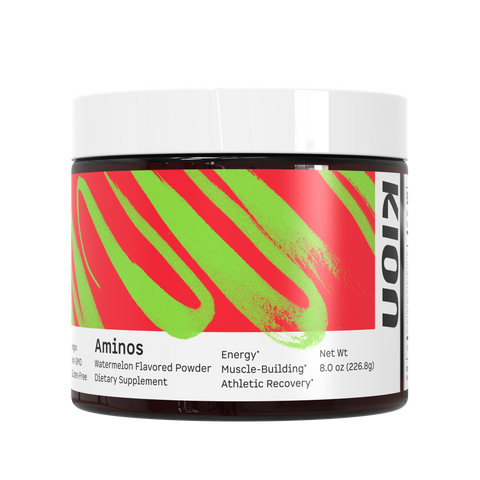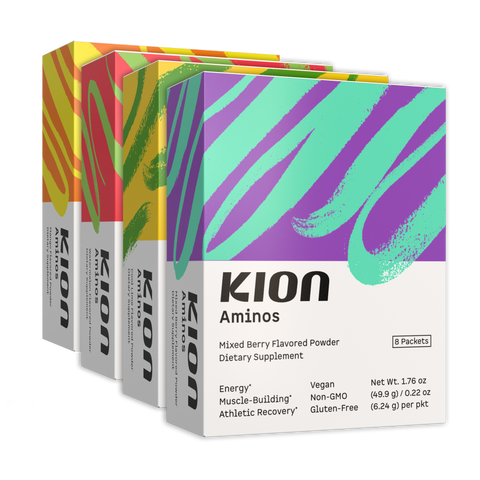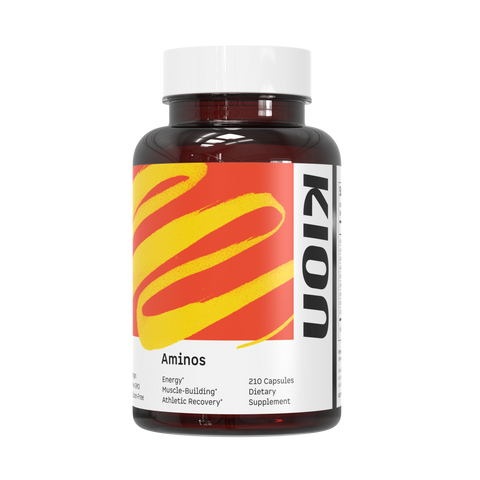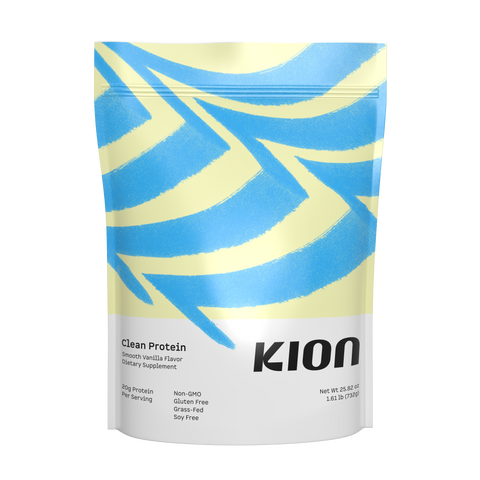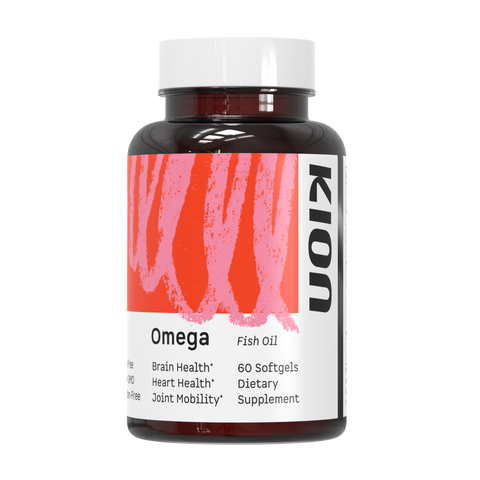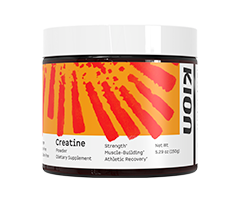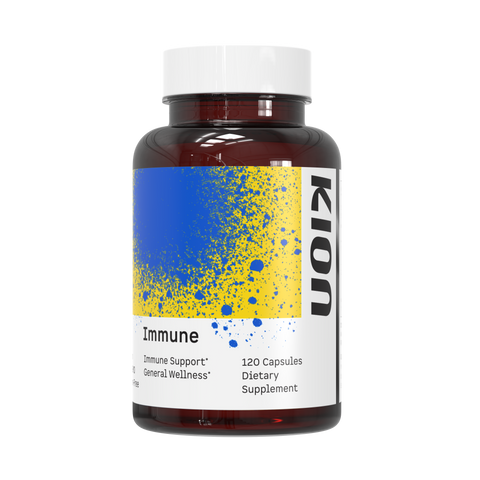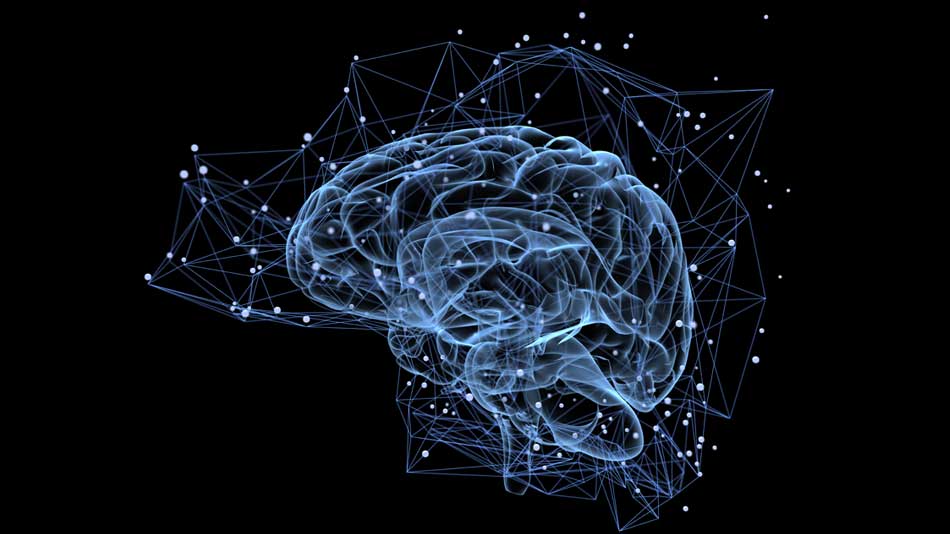Yep, that giant gooey mash-up of neuronal cells, white matter, gray matter, blood vessels, nerves, tiny bones, sutures and squishy tissue can occasionally go south, and as a result, most of us walk around with broken, inflamed, poorly functioning and poorly trained brains.
It’s kinda sad that you have a supercomputer in your cranium that’s currently firing like a set of cheapo, half-broken Christmas lights from the general store, isn’t it?
And there are multiple ways this “amazing machine” can wind up functioning at subpar levels. In this chapter, you’re going to discover one such way, and it involves the multitude of bumblebees that buzz around your body 24-7: your neurotransmitters.
If neurotransmitter signaling and neurotransmitter levels are optimized, then your brain tissue, nerve cells and neurons will be healthy enough to optimally process information and seamlessly communicate with your body during a board meeting, a workout, sex or a mind-blowing movie, high enough for you fall asleep fast, decrease anxiety, and resist getting distracted by tempting foods, and balanced enough for your mind to pour through books, websites and podcasts while actually absorbing the precious data you seek.
Take, for example, the recent study:“Brain Adenosine Mediates the Negative Effect of Mental Fatigue on Endurance Exercise Performance”.
Yeah, yeah, that title may sound like a good way to kill the buzz at a cocktail party, but it’s actually an extremely relevant example of the importance of neurotransmitters. The study highlights the fact that rising amounts of the neurotransmitter adenosine in your brain is what causes mental fatigue during exercise. So when you feel like throwing in the towel during your lunchtime run, that’s simply a neurotransmitter talking.
And guess what occupies the same receptor sites as adenosine in your brain, thus blocking the effects of adenosine? A popular psychoactive drug known as caffeine. That’s why a pre-workout cup of coffee can work so well for exercise energy.
But if you drink too much coffee or use too much caffeine too often, your brain creates more and more cell receptor sites for the neurotransmitter adenosine, and eventually, you need more and more caffeine to get the same effect. The simple fix? Stop drinking regular coffee and replace it with decaf coffee for just about one week. This trick completely reboots your adenosine receptors, desensitizes your brain to caffeine, and makes caffeine “work” again so that you no longer need a quad Americano to tackle a hard day at the gym. This is one perfect, practical example of how neurotransmitters go wrong and how you can fix them.
How Neurotransmitters Work
Before understanding neurotransmitter problems, you must first understand how your nerves actually communicate with one another. Obviously, this article is not meant to be a comprehensive primer on the nervous system, but it’s important that you have a basic understanding why neurotransmitters are so dang important.
Like the wires in your home’s electrical system, nerve cells make connections with one another in tiny circuits called neural pathways. But unlike the wires in your home, these nerve cells do not touch, but instead come very close together at something called a synapse. At the synapse, the two nerve cells are separated by a small gap, which is called a synaptic cleft. The sending neuron is called the pre-synaptic cell (AKA an axon) while the receiving neuron is called the post-synaptic cell (AKA a dendrite).
In a one-way direction across the synapse from the pre-synaptic cell to post-synaptic cell, your body sends chemical messages. It sends these chemical messages using – you guessed it – neurotransmitters. This is called synaptic transmission.
Let’s look at an example of a synaptic transmission that uses a neurotransmitter which you may have heard of before: serotonin. In this case, the pre-synaptic cell makes serotonin from an amino acid called tryptophan and then packages that serotonin into vesicles located in end terminals on the pre-synaptic cell. When a signal called an action potential arrives from your brain, that signal passes down presynaptic cell into the end terminals.
At this point, when the signal arrives, the serotonin is released and passes across the synaptic cleft, where it binds to special proteins called receptors on the outside of the post-synaptic cell. If enough serotonin binds to receptors, a threshold level is reached, and the action potential will be propagated in that cell and move on to the next cell. In the case of something like you wanting to contract your muscles to rip a barbell off the ground, the action potential would eventually reach skeletal muscle fibers and cause that contraction.
Next, so that the nerve doesn’t remain in a constantly “turned on” state, the remaining serotonin molecules in the synaptic cleft then get destroyed by special enzymes in the cleft called monoamine oxidase (MAO) and catechol-o-methyl transferase (COMT). Some serotonin also gets taken back up by specific transporters on the pre-synaptic cell (this is called “reuptake”). All of this enables the nerve signal to be turned “off” and readies the synapse to receive another action potential.
Of course, in addition to serotonin, there are a ton of other types of neurotransmitters, including acetylcholine, norepinephrine, dopamine and gamma-amino butyric acid (GABA). But let’s keep kicking the serotonin horse to death. Say you have a neurotransmitter deficit of serotonin, which would, as you now know, compromise synaptic transmission of any nerve signals in your body that are dependent on serotonin.
This type of serotonin deficit can quickly create:
- Depression
- Appetite Cravings
- Brain Fog
- Low IQ
- Anxiety
- Panic Attacks
- Insomnia
- Eating disorders
- Migraines
- Ease of distraction or ADD
Millions of people walk around every day with some kind of neurotransmitter deficiency or suboptimal nerve cell communication. You’ve probably experienced at least one of these issues before, right? The good news is that you don’t have to go shopping for a straitjacket or check yourself into a mental institution.
Instead, there are actually eight ways that you can fix these kinds of neurotransmitter problems yourself. Nail these, and you’ve nailed your neurotransmitter status.
7 Ways To Fix Neurotransmitters & Balance Brain Chemistry
Living in our modern world, you're exposed to countless things that can affect your brain chemistry and alter the ideal balance of brain chemicals. These are the seven most important factors to consider. Armed with this knowledge, you'll be able to decrease or avoid altogether the major offenders.
1. Taper Off or Avoid Anti-Depressants
Prozac, Sarafem, Paxil, Zoloft, Celexa, Lexapro, Effexor, Cymbalta, Pristiq…the list of popular anti-depressant drugs goes on and on – with hundreds of millions of prescriptions handed out and billions of dollars in sales.
Here’s why anti-depressants are such a problem: they work in one of two ways – either by increasing the brain levels of serotonin or by blocking the reuptake of serotonin. That is why most of them are called “SSRI’s”, or Selective Serotonin Reuptake Inhibitors.
These SSRI’s cause a short-term “flooding” of the brain with serotonin, as well as a very fast degrading or breaking down of serotonin as it is left to hang around in the synaptic cleft.
As a result, not only are more and more levels of serotonin eventually required as serotonin receptors become desensitized to the constant flux of neurotransmitters, but there are also lower levels of naturally available serotonin as your biology begins to rely on external sources of the serotonin. When you do actually release your own serotonin, it winds up getting broken down far more quickly than normal, due to the fact that the enzymes in the synaptic clef have been “trained” to rapidly break down serotonin.
So you not only need constantly increasing dosages of anti-depressants, but you also end up depleting 40-60% of the serotonin receptors in your brain! In addition, the serotonin receptors in your liver, kidneys, and colon can become damaged by anti-depressant use, which affects your delicate gut-brain balance and your regulation of appetite. It’s a vicious cycle!
There’s a great deal of evidence out there that anti-depressants don’t really work well anyways. Meta-analyses of studies on anti-depressants have revealed that SSRI’s have no clinically meaningful advantage over a placebo, and claims that anti-depressants are more effective in more severe conditions of depression have little evidence to support them. The few studies that have shown anti-depressants to have a small degree of superiority over placebo were poorly designed studies. If you want to take a deeper dive into the research, here's a few great resources:
- Efficacy of Antidepressants in Adults
- The Emperor’s New Drugs: An Analysis of Antidepressant Medication Data Submitted to the U.S. Food and Drug Administration
- Initial Severity and Antidepressant Benefits: A Meta-Analysis of Data Submitted to the Food and Drug Administration
- Antidepressants: A Triumph of Marketing Over Science?
- Antidepressants and Placebos: Secrets, Revelations, and Unanswered Questions
- Do Antidepressants Cure or Create Abnormal Brain States?
- The Antidepressant Debate
- Serotonin and Depression: A Disconnect between the Advertisements and the Scientific Literature
Ultimately, anti-depressants have not been convincingly shown to affect the long-term outcome of depression or suicide rates, and chronic exposure to SSRI antidepressants can actually make you feel apathetic or less engaged in your life.
2. Moderate Stimulants
Low dose caffeine can improve mental performance and protect against Alzheimer’s, so you don’t need to avoid it entirely. But acting in a similar manner to anti-depressants, high doses of caffeine, ephedrine, ephedra, guarana, Ritalin, and any other central nervous system stimulant can flood the brain with neurotransmitters, creating neurotransmitter resistance or long-term receptor damage. That’s right – long-term, chronic use of the can with the crimson male cow on the front of it doesn’t really give you wings but instead neatly clips those wings.
This is why you may want to consider drinking no more than 8-10 ounces of black coffee each day (or any other caffeine source in the range of 80-150mg), and switch to decaf for at least 1 week every couple months. People who frequently use coffee, tea, soda or energy drinks actually change their brain’s chemistry and physical characteristics over time. Because it is both water and fat soluble, caffeine can easily cross your blood-brain barrier, and as you dump more and more caffeine into your body, your brain cells actually grow more receptors for a neurotransmitter called adenosine.
Adenosine causes feelings of tiredness, but the structure of caffeine closely resembles adenosine – so caffeine can easily fit into your brain cells’ receptors for adenosine. With its receptors constantly plugged up by caffeine, adenosine can no longer bind to those receptors and cause the feeling of tiredness. Unfortunately, your body’s response is to create more and more adenosine receptors – so you eventually need more and more caffeine to block the feeling of tiredness – and over time, you build up a tolerance.
The good news is that to kick a caffeine habit and “reset” your adenosine receptors, you only need to get through about 7-12 days of caffeine avoidance, which is why you should consider keeping a bag of decaf coffee or decaf tea handy and taking week-long breaks from coffee about once every one to two months.
3. Avoid Toxin Exposure
Whether it’s mycotoxins from moldy coffee, the fragrance of your cologne or perfume wafting into your nasal chambers, or the air freshener hanging your car, toxins affect product of neurotransmitters and sensitivity to neurotransmitters, causing brain damage, brain fog, and fuzzy thinking.
So how can you remedy this type of toxin exposure?
- Use organic fruits and vegetables when possible (or wash them in a water and vinegar solution)
- Use natural cleaning chemicals (lemon juice, vinegar, baking soda etc.)
- Use natural personal care products (avoid parabens, dyes, fragrances, etc.)
- Use home air and water filters.
- Use holistic dentistry.
Once you begin to make these changes, you’ll find it very interesting that when you do encounter an attack against your neurotransmitters, such as walking through the fragrances section of a store in the mall, you’ll be extremely sensitive and notice it almost immediately. It’s important to your body in these situations. If it looks, tastes or smells synthetic, avoid it. If you can’t eat it without dying a horrible death, don’t smear it on your teeth, hair, skin or nails.
4. Avoid Sensory Overload
21st century sensory overload in the form of sounds, rapid visual and auditory effects from television, movies, computer games, electronic monitors flickering faster than the eye can detect, radio and EMF waves, fluorescent lighting, a hurried lifestyle, and excessive work all require your brain to constantly modulate these high levels of sensory bombardment that it would never have encountered in a more ancestral setting.
Your brain must calm itself down from all these stimuli using its own precious supply of calming, inhibitory neurotransmitters such as serotonin and GABA. This overstimulation has a significant impact on neurotransmitters and neurotransmitter receptors. So consider the following:
- Do you listen to loud music while you’re exercising?
- Do you have a steady diet of fast-moving, exciting or violent movies or video games, especially before bed?
- Do you play lots of computer games, often for long periods of time, such as several hours?
- Do you spend much of your day staring at a computer monitor?
- Do you constantly have music such as the radio or streaming music stations playing in the background?
- Does your home or workplace constantly have artificial, fluorescent lighting turned on?
If so, then put down the fluorescent full body raving necklace, turn down the death metal and back away from the 3D Bluray boxset. Do not be afraid of silence, quiet and rest. Do not be afraid to unplug.
5. Fix Your Gut
You have a second brain, and that second brain is not in your head. Think lower. OK, fellas, not that low. Up a bit higher. Yes, the second brain is in your gut.
The enteric nervous system in your gut uses more than thirty neurotransmitters, just like the brain, and in fact, 95 percent of the body’s serotonin is in the gut. This makes sense when you consider that in the nine meters from your esophagus to your anus, there are about 100 million neurons, more than in either your spinal cord or your entire peripheral nervous system!
This also explains why irritable bowel syndrome, something that afflicts nearly every active individual now and then, arises in part from too much serotonin in your gut – a neurotransmitter imbalance (as you can probably imagine, this is why anti-depressants can cause serious gut issues).
Not only does your gut lining produce neurotransmitters, but the billions of bacteria living in your gut also churn out neurotransmitters. So if your gut lining is damaged or your gut flora is out of balance, then you are at serious risk for neurotransmitters deficiencies and imbalances.
Learn about the most common gut issues in the article How To Fix Your Gut, Optimize Digestion & Maximize Nutrient Absorption.
6. Replace Essential Building Blocks
Neurotransmitters are primarily comprised of amino acids, vitamin B, and minerals. A deficiency of any of these three crucial compounds can leave you with inadequate neurotransmitter building blocks.
Some of the best high-quality amino acid sources include grass-fed beef, wild salmon, eggs from pastured chickens, raw organic dairy, almond and almond butter, quinoa, and spirulina or chlorella sources. I’ve found that many people who struggle with sleep issues or motivation issues that are tied to neurotransmitter issues also benefit from the use of essential amino acids such as Kion Aminos, which is an optimally-balanced blend of all eight essential amino acids.
In order for the nervous system to synthesize and circulate the neurotransmitters formed by amino acid precursors, you need to have an adequate intake of B complex vitamins, and Vitamins B6, B12, and folate are especially important in nerve metabolism. Excellent food sources of vitamin B6 include bell peppers, turnip greens, and spinach; excellent sources of folate include spinach, parsley, broccoli, beets, turnip and mustard greens, asparagus, romaine lettuce, calf’s liver, and lentils, and excellent sources of B12 include calf’s liver and snapper. For Vitamin B supplementation, look into full spectrum vitamin B blends such as Lifeshotz, the Thorne Multivitamin Complex or Qualia (which is technically a “nootropic” with plenty more than B Vitamins in it, but an excellent brain hack nonetheless).
You’ll get very good doses of minerals from a well-balanced diet that includes a broad spectrum of real foods. But if you’re frequently sweating or under high amounts of exercise or lifestyle stress (this type adrenal stress rapidly depletes minerals), then you should also include a mineral-rich source of protein such as a goat-based protein powder (goat protein is higher in minerals than cow protein), and a daily dose of either a trace liquid mineral supplement and liberal use of a high quality salt, such as Himalayan sea salt or Colima Mexican salt.
7. Lubricate Your Nerves
One of the ways to enhance the speed with which your brain communicates with your body and muscles is to care for the health of your nerves. Your nerves are wrapped in sheaths called myelin sheaths, and a diet for a healthy nervous system should be comprised of specific nutrients that support the formation of these myelin sheaths, and also the health of the nervous system as a whole.
After all, it doesn’t matter how many neurotransmitters you make if the action potentials they are propagating can’t be adequately transmitted because you have broken down, degraded myelin sheaths.
For this reason, you should consider following the fat percentage intake recommendations you learn about in Ben Greenfield's podcast interview with Deep Nutrition author Cate Shanahan but also include a high intake of omega-3 fatty acids, especially docosahexaenoic acid (DHA). DHA is particularly important in building the myelin sheath structure and preventing degrading and breakdown of nerve cells.
Flax seeds, walnuts, kale collard greens, and winter squash are excellent sources of omega-3 fatty acids, but the amount of DHA actually absorbed from seeds, nuts and plants can be relatively low. Better sources of more readily available omega-3 fatty acids and DHA include salmon, sardines, cloves, grass-fed beef, halibut, shrimp, cod, tuna and (especially for vegans or vegetarians), algae-based DHA supplements such as chlorella, spirulina or marine phytoplankton. Other foods that support neuronal membranes and myelin sheath health due to their high content of oleic acids include olive oil, almonds, pecans, macadamias and avocados.
Summary - A Balanced Brain
So there you have it: avoid anti-depressants, modulate stimulants, avoid toxins, avoid sensory overload, fix your gut, replace building blocks, and eat healthy fats. You now know how to enable your nerve cells to be highly tuned communicators, ready to listen and respond appropriately to the commands from your brain.
Not surprisingly, many of the strategies you’ve just learned can be used not just to increase focus, decrease distractions, fall asleep faster and banish brain fog, but also to enhance highly nervous system dependent systems in your body such as power production and muscle contraction speed.
Just think about it. What is something you do every day that is “overloading” your neurotransmitters? How can you eliminate that? What is one thing you could add to your diet or supplement regimen to get more neurotransmitter support? Leave your comments (and questions) below!



